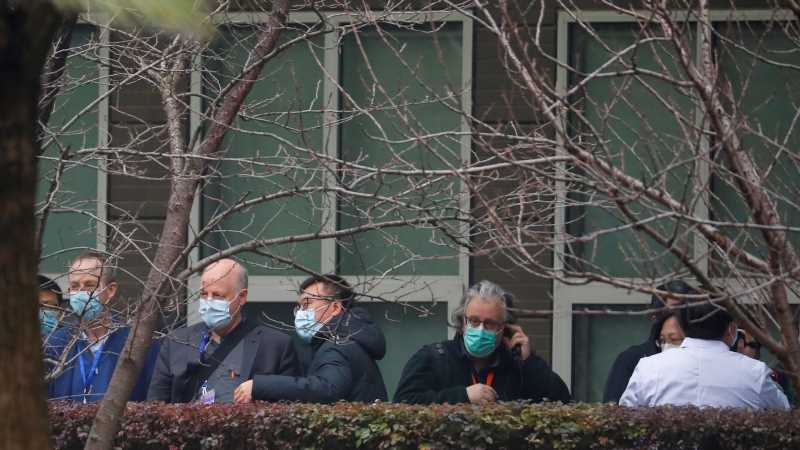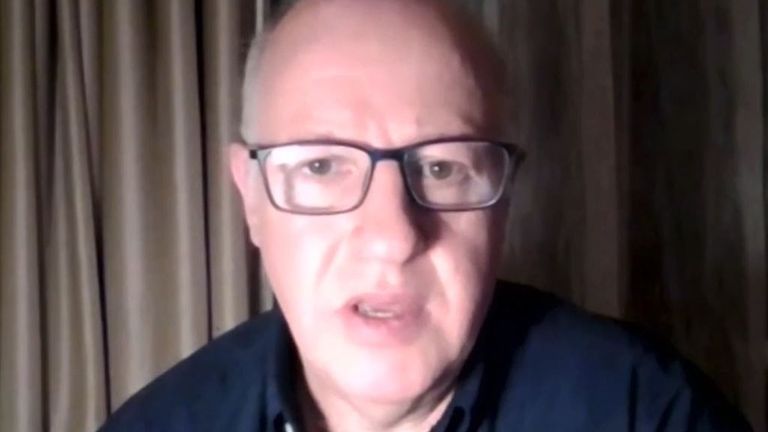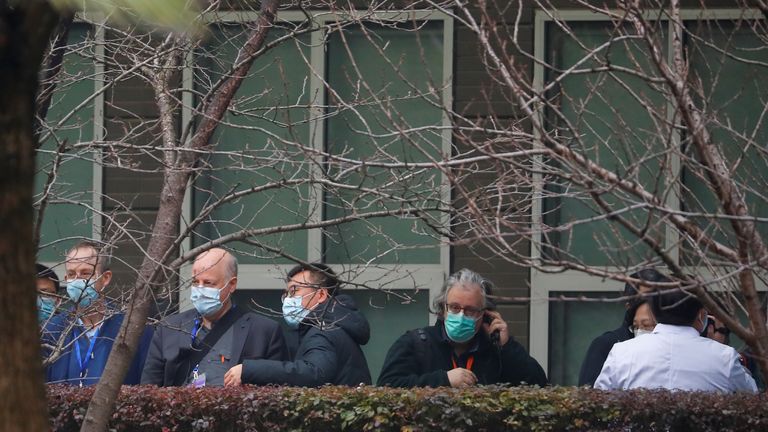The World Health Organisation team in Wuhan investigating the origins of COVID-19 say they are getting data “which no one has seen before” and are “really getting somewhere” – and have not ruled out the possibility that the virus had escaped from a lab.
Dr Peter Daszak, part of the ongoing WHO mission, told Sky News: “We are seeing new information and it’s good, it’s very valuable stuff that is beginning to help us look at the right directions for this virus.”
In his first interview with a British broadcaster since arriving in China, Dr Daszak, who is the president of EcoHealth Alliance, an NGO, said that site visits were offering valuable information – especially the Huanan seafood market, where the first ever cases of COVID-19 were clustered.
Live COVID updates from the UK and around the world
“We are in the market looking around on our own and asking questions, we are meeting with market managers, with vendors who worked there and people from the community and asking them questions.
“We are talking to people who collected samples from the floor of the market that then tested positive. That’s the sort of information we are getting with the person that really matters.”
The WHO mission arrived in Wuhan more than a year after the outbreak there began, after the organisation complained about delays in access. But Chinese scientists have been conducting their own research into the origins of COVID-19 in the meantime. Dr Daszak said “there are little clues we are finding here and there in the wealth of data”.
“They are sharing data with us that we have not seen before – that no one has seen before. They are talking with us openly about every possible pathway. We really are getting somewhere and I think every member of the team would say that.
“I think China is open and willing to work with us and we are seeing that every day.”
The WHO is scheduled to visit the Wuhan Institute of Virology. Researchers there handled coronaviruses but have rejected claims that COVID-19 emerged as the result of a leak. Dr Daszak told Sky News the possibility had not been ruled out.
“We’re all aware of the hypotheses around the potential involvement of the lab in this and we’re certainly going to ask questions about all of the key aspects of the Wuhan Institute of Virology.
“If there are data that point towards any hypothesis, we’ll follow the data, we’ll follow the evidence where it leads us. If it leads us to a seafood market and a cold chain, we’ll follow it there.
“If it leads us to a wildlife farm or a wildlife market we’ll go there. If it leads us to a lab we’ll go there. Everything’s on the table and we’re keeping an open mind.”
Dr Daszak has a long working relationship with the Wuhan Institute of Virology and with Shi Zhengli, a researcher there, but rejected the suggestion that his connections to the lab would compromise his impartiality.
“My relationship with China, my work here, my connections to the Wuhan Institute of Virology and Shi Zhengli are very well known. And they’re really well known because I’ve spent 20 years or 15 years publishing the data. I think that’s a pretty worthwhile thing that we’ve been doing.”
The WHO mission is being tightly controlled by China, with scientists being kept in isolation as part of the country’s COVID-19 prevention measures. Critics have questioned to what extent the investigation is being stage managed – especially after the scientists visited a propaganda museum detailing Wuhan’s fight against COVID-19 on their second day.
Dr Daszak defended visiting the museum, which features giant portraits of Chinese president Xi Jinping in its first hall.
“We’re intelligent enough to read beyond the show in a museum,” he said. “We know what the flags flying and the national pride part of it is. But in there are real artefacts from real patients… It’s absolutely critical to see that.”
Dr Daszak was optimistic about eventually finding the origins of COVID-19.
“We will get there and we will at the end of this mission produce a report which will have some indications of what the most likely scenarios are.”
But even if the origin is discovered, Dr Daszak said that new variants of the virus meant we would be living with COVID-19 forever.
“This is one of the viruses that jumps into humans and then became endemic, and will be with us forever.
“But we’ll come to terms with it. We’ll have a vaccine that works and we get an escape variant, we’ll modify the vaccine.”
Source: Read Full Article







